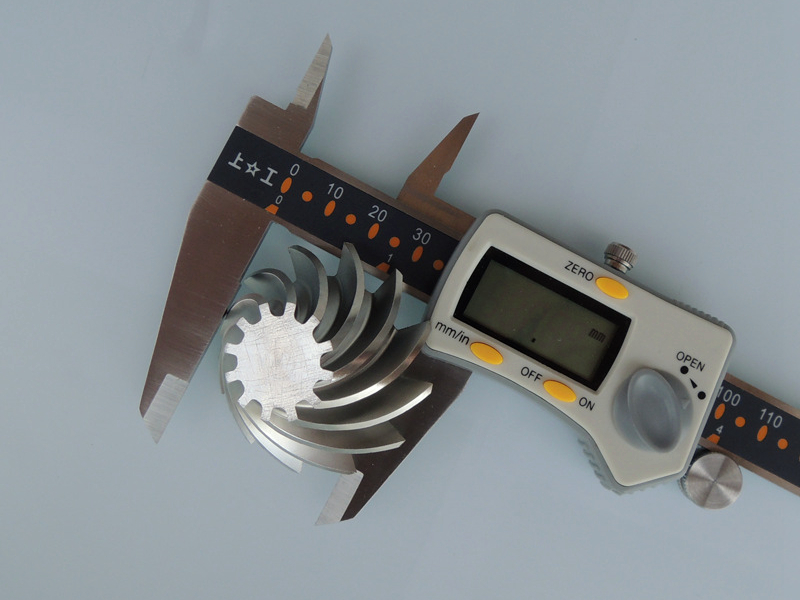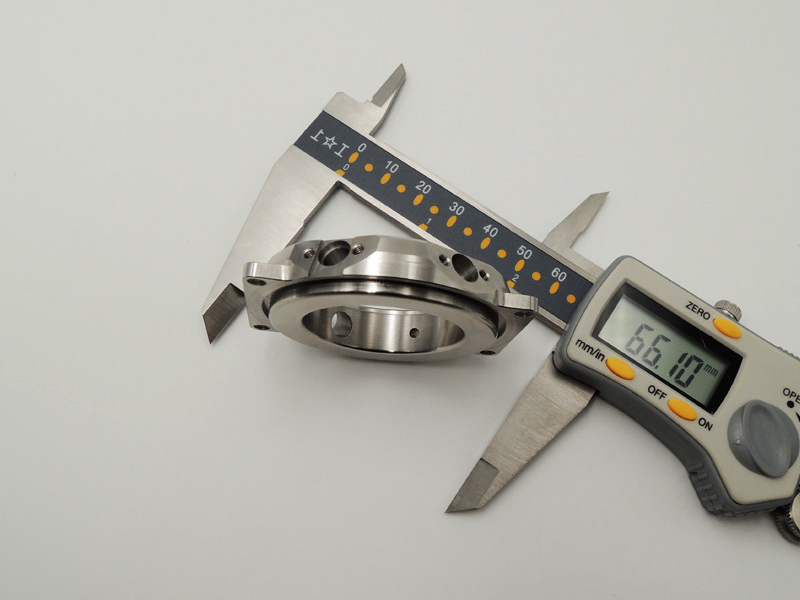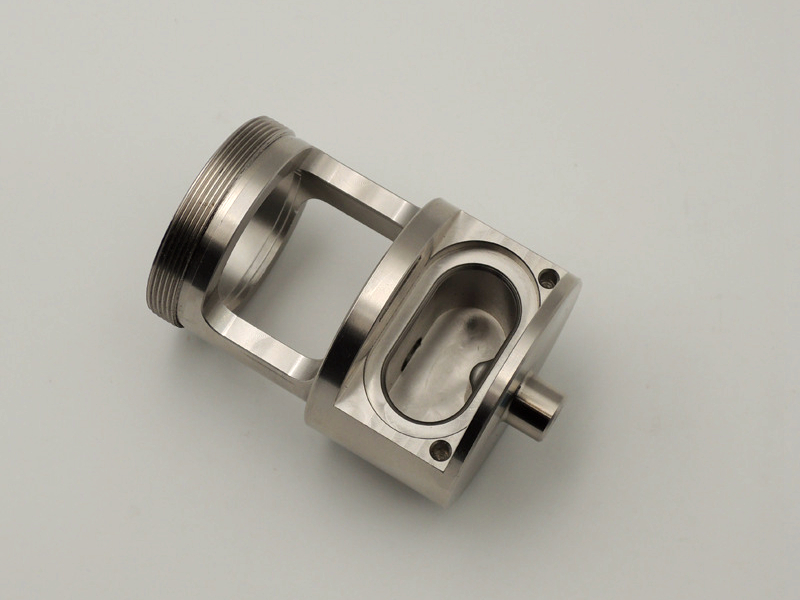Ensuring Quality: How Reliable CNC Machining Shops Manage Inspection and Compliance
Introduction
Maintaining exceptional quality standards is a non-negotiable requirement in precision CNC machining. Components must meet strict tolerances, surface finishes, and material integrity to function in critical sectors like aerospace, medical, nuclear, and industrial equipment. Reliable CNC machining shops implement systematic inspection and compliance processes to ensure every part meets specification. In this article, we explore these processes from an engineering perspective.
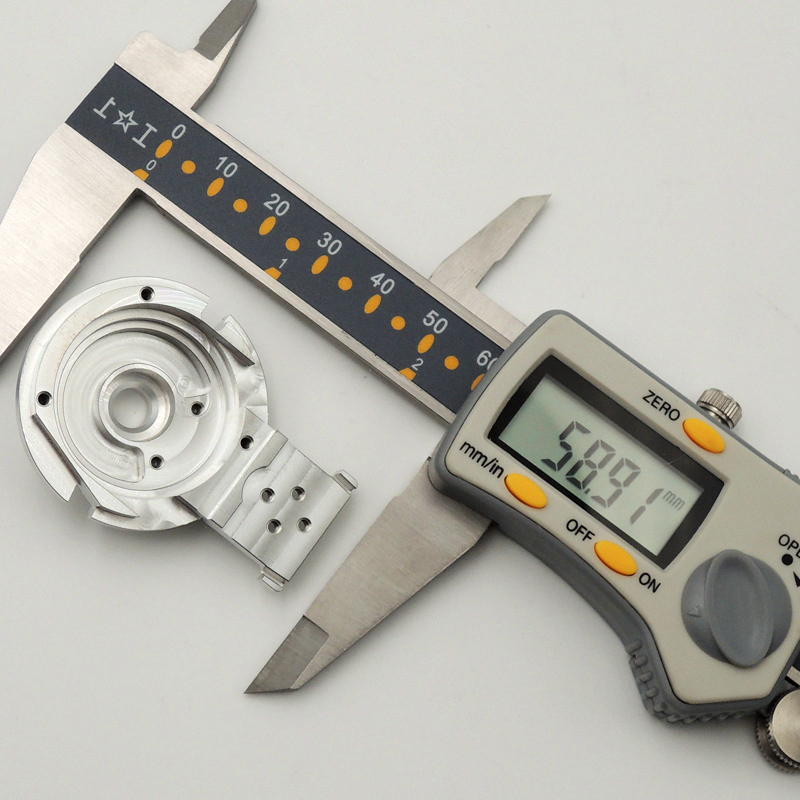
The Foundation of Quality: Certifications and Standards
A trustworthy CNC machining shop begins with adhering to international quality standards and certifications. ISO 9001:2015 serves as the baseline for quality management, offering a systematic approach to process control and promoting continual improvement. For aerospace and defense sectors, AS9100 certification is often mandatory. Medical device machining typically requires compliance with ISO 13485.
Shops serving power generation or nuclear industries may need additional qualifications, such as NQA-1 or customer-specific audit programs. Without these frameworks, consistent quality cannot be assured.
Beyond certifications, shops must align processes with GD&T (Geometric Dimensioning and Tolerancing) standards and comply with material traceability requirements. For instance, superalloy CNC machining for turbine components demands full traceability of heat treatment and mechanical properties.
Building a Robust Inspection Plan
Inspection is integral to CNC machining and must be planned in conjunction with manufacturing. Leading shops develop a formal inspection plan (IP) during process planning. This includes:
Critical-to-quality (CTQ) dimensions identification
Sampling frequency and methodology
Verification equipment selection
Acceptance criteria
Record-keeping protocols
Modern precision machining services utilize advanced equipment, including Coordinate Measuring Machines (CMMs), optical comparators, laser scanners, and surface roughness testers. For example, an aerospace Inconel 718 part may require a surface finish below Ra 0.4 μm and hole tolerances within ±0.005 mm, necessitating precise CMM verification.
In-process inspection is equally important. Shops implementing Statistical Process Control (SPC) monitor machining trends in real time, identifying potential deviations before parts go out of tolerance.
Role of Metrology in CNC Quality Control
Metrology is the science underpinning all measurement in CNC inspection. Calibrated equipment traceable to NIST (or equivalent national standards) ensures accuracy. Typical measurement tools in a reliable shop include:
Micrometers and calipers
Bore gauges
Surface profilometers
Hardness testers
CMMs
Consider medical device CNC machining. Titanium implants require precise geometries with sub-micron consistency and smooth finishes for optimal biocompatibility. Only metrologically sound inspection ensures compliance.
Moreover, shops often conduct Gage R&R (repeatability and reproducibility) studies to validate the reliability of their measurement systems.
Compliance Documentation and Traceability
A CNC shop’s ability to manage documentation is vital for compliance and auditability. This includes:
Inspection reports
First Article Inspection Reports (FAIR)
Material test reports (MTRs)
Process certifications (e.g., thermal coating, heat treatment)
Non-conformance reports (NCRs) and corrective actions
These documents form the quality records customers rely on for traceability, warranty, and regulatory compliance.
Modern CNC machining providers use integrated quality management systems (QMS) to link inspection data directly with part records, reducing errors and enhancing traceability.
First Article Inspection (FAI): A Critical Milestone
First Article Inspection (FAI) is a fundamental step for validating the production process of any new CNC component. In industries such as aerospace or medical devices, FAI is a contractual and regulatory requirement.
A comprehensive FAI involves producing an initial part under controlled conditions, followed by a complete dimensional and visual inspection. This verifies:
Part dimensions fully match the engineering drawings
Material certifications conform to specifications
Surface finishes meet required levels (e.g., Ra < 0.8 μm for surgical instruments)
Processes such as electropolishing or anodizing are correctly applied
The FAI ensures the CNC shop’s process is capable before moving to full production. For complex parts like robotics aluminum CNC machined components, FAI provides the baseline for future in-process verification.
In-Process Inspection: Real-Time Quality Assurance
Robust CNC machining operations do not rely solely on final inspection. In-process verification, performed during machining, catches issues before non-conforming parts are produced.
Methods include:
Operator-performed dimensional checks using calibrated handheld tools
Inline probing on multi-axis machining centers
Real-time SPC data collection
For example, during the production of precision brass CNC-machined valves, inline probes can check bore concentricity and depth while the part is still on the spindle. This reduces the risk of scrap and improves process yield.
Final Inspection and Acceptance
Final inspection is the last quality checkpoint before parts are shipped to customers. It verifies the entire lot’s conformance to specification.
Key elements include:
100% inspection of CTQ dimensions
Surface finish verification (e.g., using profilometers for polished medical parts)
Hardness testing for heat-treated steels
Coating thickness measurement for PVD-coated CNC components
Visual inspection for cosmetic defects
Parts like automation, stainless steel, and CNC precision components often have stringent appearance criteria in addition to functional tolerances.
An acceptance process is formalized with documented inspection reports, providing clear evidence of compliance for each shipment.
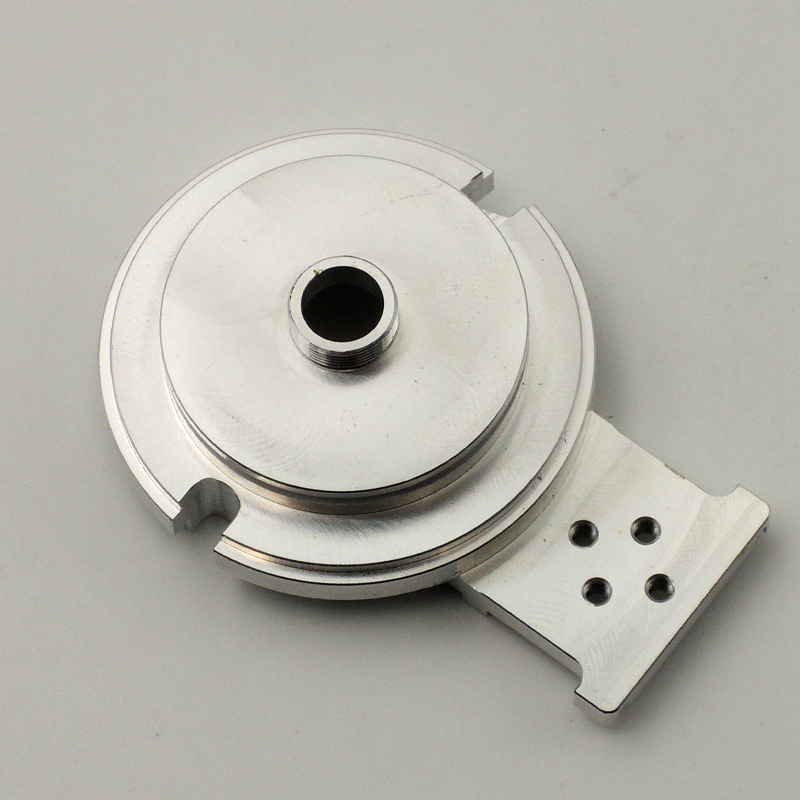
Supplier Audits and Continuous Improvement
Top-tier CNC machining shops welcome customer audits and perform regular internal audits to drive quality improvement. Audits typically cover:
Calibration system management
Document control
Training and competency of inspection personnel
Effectiveness of Corrective and Preventive Actions (CAPA)
Maintenance of equipment and environmental controls
For example, during the machining of aerospace titanium CNC milled structural components, customer audits may focus on verifying process stability and material traceability from the mill to the finished component.
Shops focused on continuous improvement may implement Lean, Six Sigma, or Kaizen programs to reduce defects, shorten lead times, and increase process capability.
Advanced Quality Tools: Digital Integration
The most advanced CNC machining companies are adopting Industry 4.0 technologies to enhance quality assurance. This includes:
Digital twins for predictive quality modeling
Automated data capture from CMM and inspection tools
Statistical trend analysis across lots
Real-time dashboards for quality metrics
For instance, oil, gas, and titanium CNC-machined valve components benefit from predictive maintenance of CNC equipment, ensuring repeatability of high-precision features even under demanding production schedules.
Managing Material Quality and Traceability
A critical aspect of quality assurance in CNC machining is controlling the quality and traceability of raw materials. Shops serving regulated industries must demonstrate that every component is made from certified materials that meet customer specifications.
For instance, in the case of Inconel 718 CNC machining for aerospace parts, the material batch must be accompanied by complete certification from the mill, including its chemical composition and mechanical properties.
Material control includes:
Receiving inspection of incoming materials
Verification against the purchase order and specification
Labeling and segregation to prevent mix-ups
Recording heat numbers and lot numbers on job travelers
In sectors such as medical devices or nuclear, this traceability must extend throughout machining, surface treatment, and final inspection, enabling full backward traceability if an issue arises in the field.
Compliance with Surface Treatments and Coatings
Surface treatment is often critical to a component’s performance, especially in demanding environments. Reliable CNC shops ensure surface treatment compliance by collaborating with qualified subcontractors and verifying results in-house.
Common treatments include:
Anodizing for aluminum aerospace components
Electroplating for wear and corrosion resistance
Thermal barrier coatings for turbine parts
Painting solutions for visual and functional finishes
For example, electronics aluminum CNC machined components often require perfect cosmetic anodizing with no surface blemishes, verified through 100% visual inspection under controlled lighting.
Certified subcontractors provide process certifications and test reports, which are integrated into the CNC shop’s quality records for customer documentation.
Managing Tolerances in High-Precision CNC Machining
Reliable CNC machining shops consistently achieve tight tolerances because they engineer their processes with capability in mind. Key elements include:
Machine tool capability and maintenance
Environmental control (temperature stability)
Toolpath optimization
Fixturing design to minimize distortion
Cutting tool selection and management
For example, machining automation plastic PEEK CNC machined prototypes requires compensating for material shrinkage and thermal expansion to hold ±0.01 mm tolerances.
Process validation through machine qualification runs, capability studies (Cp, Cpk), and regular gage calibration ensures these tight tolerances are consistently met.
Non-Conformance Management and Corrective Actions
Even the best CNC shops occasionally encounter non-conformances. The critical difference lies in how they manage them.
A reliable shop operates a formal non-conformance management system:
NCRs are logged with root cause analysis
Containment actions are immediately implemented
Corrective actions are verified for effectiveness
Trends are analyzed to prevent recurrence
For example, during the production of industrial copper CNC-machined electrical connectors, an out-of-tolerance thread form might trigger an NCR. The shop investigates tool wear, programming, and inspection methods to resolve the root cause and prevent future defects.
A culture of transparency and problem-solving, rather than hiding defects, is the mark of a truly reliable CNC machining partner.
Supplier and Sub-Tier Quality Management
For complex assemblies or multi-stage parts, CNC shops often manage sub-tier suppliers (for processes like heat treatment or coatings). This adds another layer of responsibility to ensure total compliance.
Leading CNC shops:
Qualify and audit sub-tier suppliers
Maintain an Approved Supplier List (ASL)
Flow down customer and regulatory requirements to suppliers
Perform an incoming inspection on subcontracted processes
For instance, oil, gas, carbon steel, CNC turning tools may involve subcontracted nitriding or coating steps. The machining shop retains ultimate responsibility for ensuring final part compliance and must validate the work of its sub-tier accordingly.
The Role of Training and Culture in Quality
Technology and procedures alone cannot guarantee quality. The workforce’s competence and culture are equally crucial.
Reliable CNC shops invest in continuous training:
GD&T interpretation
Advanced inspection techniques (e.g., CMM programming)
Material behavior understanding
Industry-specific compliance requirements
For instance, machining aerospace titanium CNC turning precision parts requires a deep understanding of titanium’s machinability and nuances in post-process inspection. Only skilled machinists and inspectors can achieve the required consistency.
Beyond technical training, fostering a culture that prioritizes quality is vital. This includes:
Emphasizing that “Quality is everyone’s responsibility”
Encouraging employees to stop production for suspected issues
Rewarding quality improvements and defect prevention initiatives
Such culture leads to proactive defect avoidance, not just reactive inspection.
Traceability and Data Integrity in Digital CNC Operations
As CNC machining evolves toward Industry 4.0, data integrity and digital traceability are becoming central to quality assurance.
Advanced CNC shops leverage:
Integrated ERP + QMS systems
Real-time data logging from machine sensors
Digital inspection records linked to part serial numbers
Cloud-based quality dashboards for internal and customer use
Consider bronze CNC-milled steam turbine components. With digital traceability, each component’s full history—from material lot to every inspection point—is permanently linked to its serial number. This supports predictive maintenance, warranty support, and regulatory audits.
Such traceability is essential in sectors like power generation or nuclear, where part failure can have critical safety implications.
Customer Collaboration and Communication
Top-performing CNC machining shops view quality management as a collaborative process with their customers.
This involves:
Early engagement during part design for manufacturability (DFM) reviews
Joint definition of CTQ features and inspection requirements
Transparent sharing of FAI, SPC, and inspection data
Prompt communication regarding any quality issues or risks
For example, during a project to produce custom CNC-machined implants for medical device applications, ongoing dialogue between the shop and the OEM ensures that the parts not only meet tolerances but also address surface texture and cleanliness, which are critical to patient safety.
Such collaboration reduces costly rework, improves time-to-market, and fosters long-term trust.
How to Select a Quality-Driven CNC Machining Partner
For buyers seeking a reliable CNC machining shop, here are key indicators of a strong quality system:
Formal QMS certifications (ISO 9001, AS9100, ISO 13485, NQA-1)
Documented inspection and compliance processes
Modern, calibrated inspection equipment (CMM, profilometers, hardness testers)
Strong material traceability systems
Proactive non-conformance and CAPA processes
Positive track record with customer audits
Transparent communication and collaborative culture
Visiting the shop, reviewing sample quality documentation, and assessing employee engagement can further validate the shop’s quality focus.
Conclusion
In today’s demanding manufacturing landscape, reliable CNC machining shops differentiate themselves through rigorous inspection, robust compliance, and a culture of quality excellence.
Whether delivering high-precision CNC machined parts for industrial automation or life-critical medical implants, these processes ensure customers receive components they can trust.
As industries evolve, CNC quality assurance continues to advance with digital integration, advanced metrology, and ever-higher customer expectations. Selecting a machining partner with a proven quality management system is the first step toward achieving long-term manufacturing success.
